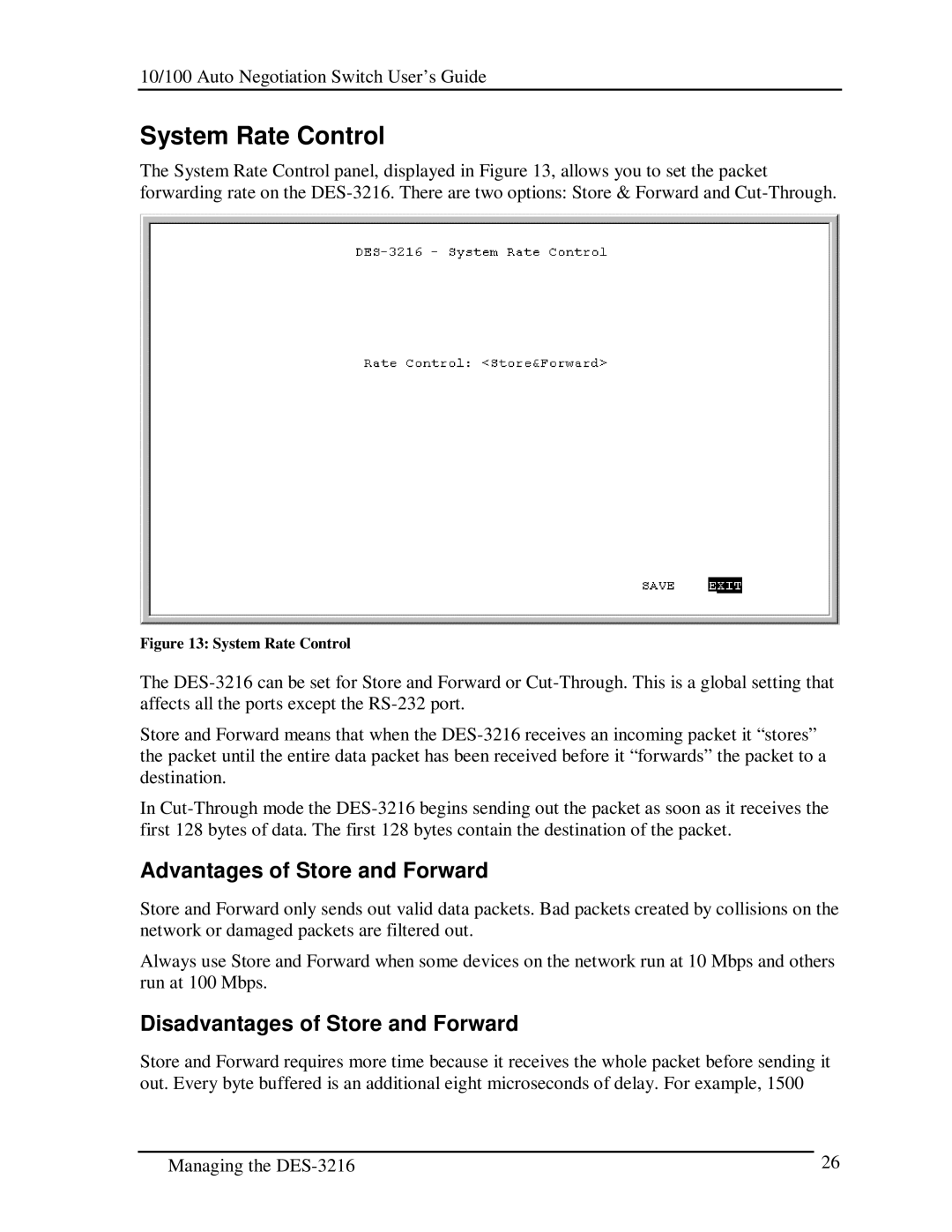
10/100 Auto Negotiation Switch User’s Guide
System Rate Control
The System Rate Control panel, displayed in Figure 13, allows you to set the packet forwarding rate on the
Figure 13: System Rate Control
The
Store and Forward means that when the
In
Advantages of Store and Forward
Store and Forward only sends out valid data packets. Bad packets created by collisions on the network or damaged packets are filtered out.
Always use Store and Forward when some devices on the network run at 10 Mbps and others run at 100 Mbps.
Disadvantages of Store and Forward
Store and Forward requires more time because it receives the whole packet before sending it out. Every byte buffered is an additional eight microseconds of delay. For example, 1500
Managing the | 26 |
